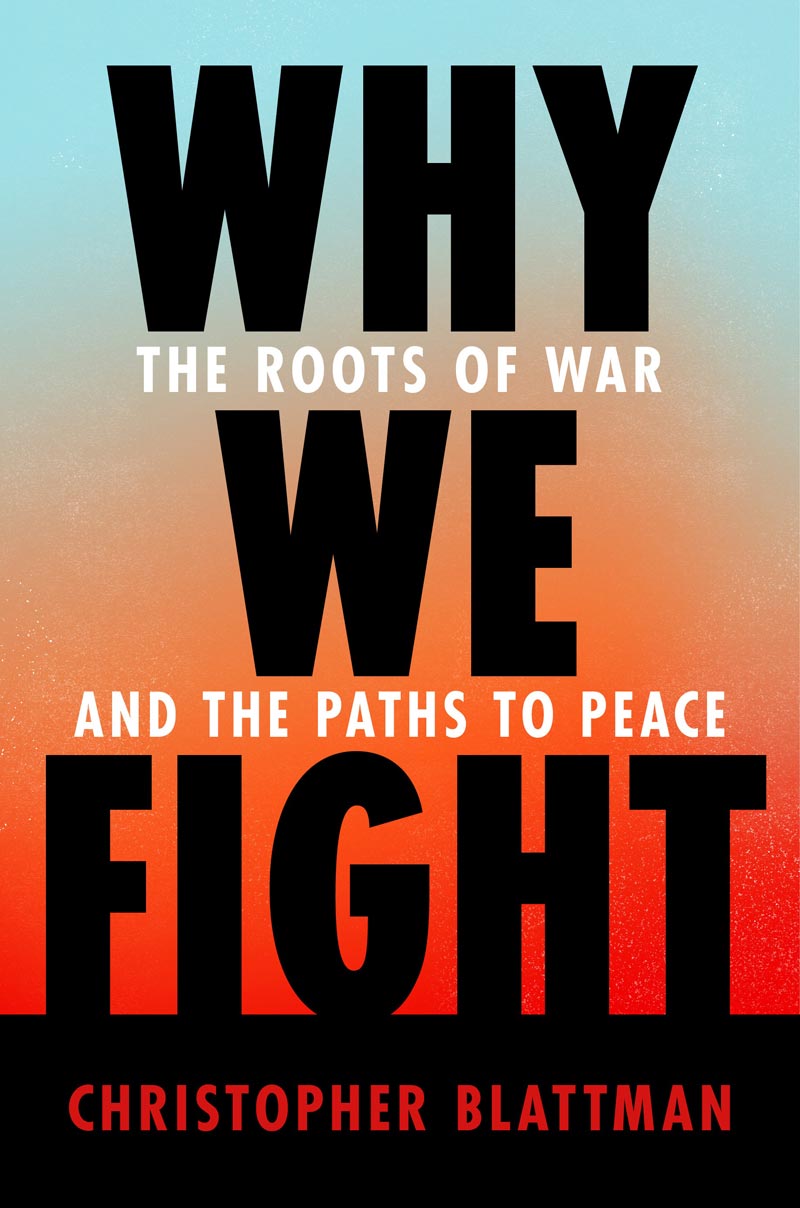Https://traffic.libsyn.com/secure/sciencesalon/mss265_Chris_Blattman_2022_4_5.mp3 [embedded content] Shermer and Blattman discuss: Putin, Russia, and Ukraine • game theory and violent conflict • 5 Reasons for conflict and war • common elements of conflict in Medellin, Chicago, Sudan, Somalia, etc. • U.S. foreign policy in Iraq, Afghanistan, Ukraine, and elsewhere, and its consequences • human nature and conflict: are we wired to fight or do environments push us into conflicts? • cooperation vs. competition / selfish genes vs. collective action problems • inner demons and better angels • violence and wars in our paleolithic ancestors • why violence has declined over the centuries • Chicago as a test case for theories of conflict and peace • why gangs, groups, and even nations mostly
Topics:
Chris Blattman considers the following as important: Podcast & Radio Appearances, Popular Press
This could be interesting, too:
Chris Blattman writes Spectator picks WWF as a best book of 2022
Chris Blattman writes From street fights to world wars: What gang violence can teach us about conflict
Chris Blattman writes When is War Justified?
Chris Blattman writes Vox FuturePerfect50
Shermer and Blattman discuss: Putin, Russia, and Ukraine • game theory and violent conflict • 5 Reasons for conflict and war • common elements of conflict in Medellin, Chicago, Sudan, Somalia, etc. • U.S. foreign policy in Iraq, Afghanistan, Ukraine, and elsewhere, and its consequences • human nature and conflict: are we wired to fight or do environments push us into conflicts? • cooperation vs. competition / selfish genes vs. collective action problems • inner demons and better angels • violence and wars in our paleolithic ancestors • why violence has declined over the centuries • Chicago as a test case for theories of conflict and peace • why gangs, groups, and even nations mostly avoid conflict and war because of its consequences • and whether international aid and economic development attenuate violence.
Dr. Christopher Blattman is the Ramalee E. Pearson Professor of Global Conflict Studies (University of Chicago), where he coleads the Development Economics Center and directs the Obama Foundation Scholars program. His work on violence, crime, and poverty has been widely covered by the New York Times, Washington Post, Wall Street Journal, Financial Times, Forbes, Slate, Vox, and NPR.
About the book
Despite the Russian invasion of Ukraine or the fear of another American civil war, most of the time wars don’t happen, and of the millions of hostile rivalries worldwide, only a fraction erupt into violence. At this moment of crisis in world affairs, this necessary book from a seasoned peacebuilder and acclaimed expert in the field lays out the root causes and remedies for war and explains the reasons why conflict wins over compromise; and how peacemakers can turn the tides once conflict threatens to or becomes war. Its message could not be more urgent right now.
Why We Fight draws on decades of economics, political science, psychology, and real-world interventions to lay out the root causes and remedies for war, showing that violence is not the norm; that there are only five reasons why conflict wins over compromise; and how peacemakers turn the tides through tinkering, not transformation. From warring states to street gangs, ethnic groups and religious sects to political factions, there are common dynamics to heed and lessons to learn. Along the way, through Blattman’s time studying conflicts in Medellín, Chicago, Sudan, England, and more, we learn from vainglorious monarchs, dictators, mobs, pilots, football hooligans, ancient peoples, and fanatics why we fight and how paths to peace can be found.
If you enjoy the podcast, please show your support by making a $5 or $10 monthly donation.

